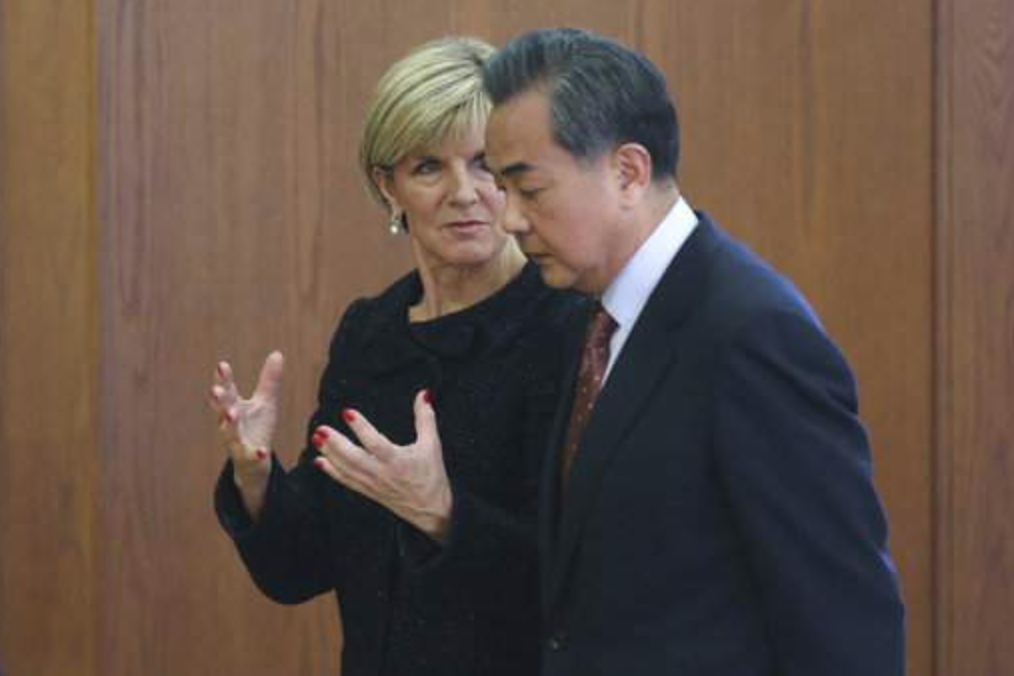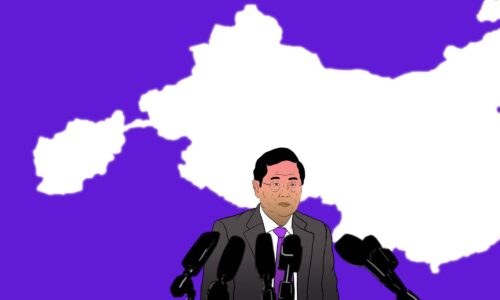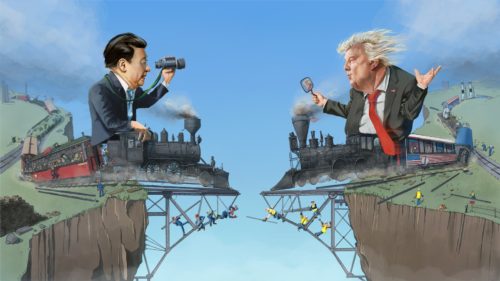The Party takes over China’s foreign affairs


China’s Ministry of Foreign Affairs has long been known as one of the government’s weakest departments. This is changing: Foreign Minister Wang Yi 王毅 has been a prominent voice, and Party Secretary Xi Jinping 习近平 has visited more foreign countries and received more visiting heads of states than any other former leader of the People’s Republic. But the ministry itself was barely mentioned in the top story on all Chinese central state media today: Xi stresses centralized, unified leadership of CPC Central Committee over foreign affairs (or in Chinese here).
- The emphasis is on the leadership of the Party: “Xi Jinping…called for enhancing the centralized and unified leadership of the CPC Central Committee over foreign affairs and opening up new prospects of major-country diplomacy with Chinese characteristics.”
- Premier Li Keqiang 李克强, Vice President Wang Qishan 王岐山, and Wang Huning 王沪宁 — sometimes called “the brain behind Xi Jinping” — were all mentioned in the Xinhua report.
- There was no mention of the foreign minister in the Xinhua report.
- It’s not just the Foreign Ministry: Under Xi, the Party has encroached on all functions of the state in an apparent reversal of the guidance issued in 1987 by the Party’s 13th National Congress, which suggested the Party should only participate in major decisions and retreat from daily government operations.
Why is this happening? Chen Daoyin 陈道银, a political scientist at Shanghai University of Political Science and Law, last year told the South China Morning Post: “And the trend will continue…for instance, the decision-making role of the State Council will dwindle, and it’s the logic of a Leninist state.”
That explanation makes sense to me: For all Xi’s propaganda about Marx, it’s the operational methods of Lenin that seem to be truly close to his heart.






